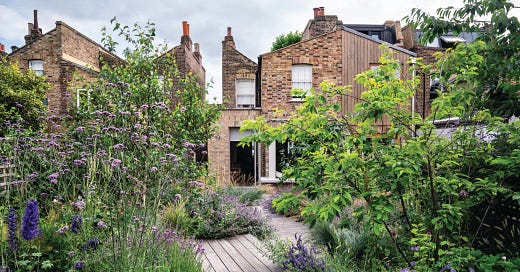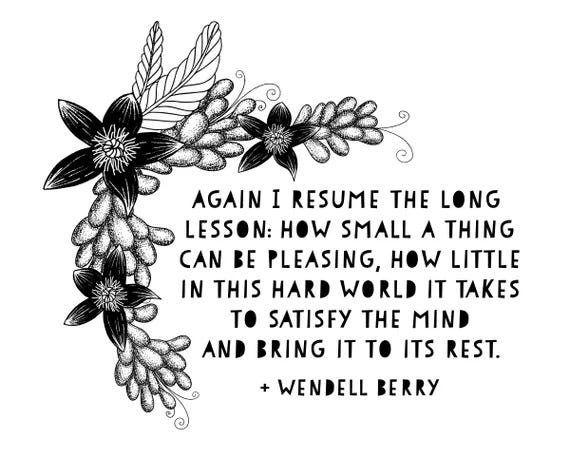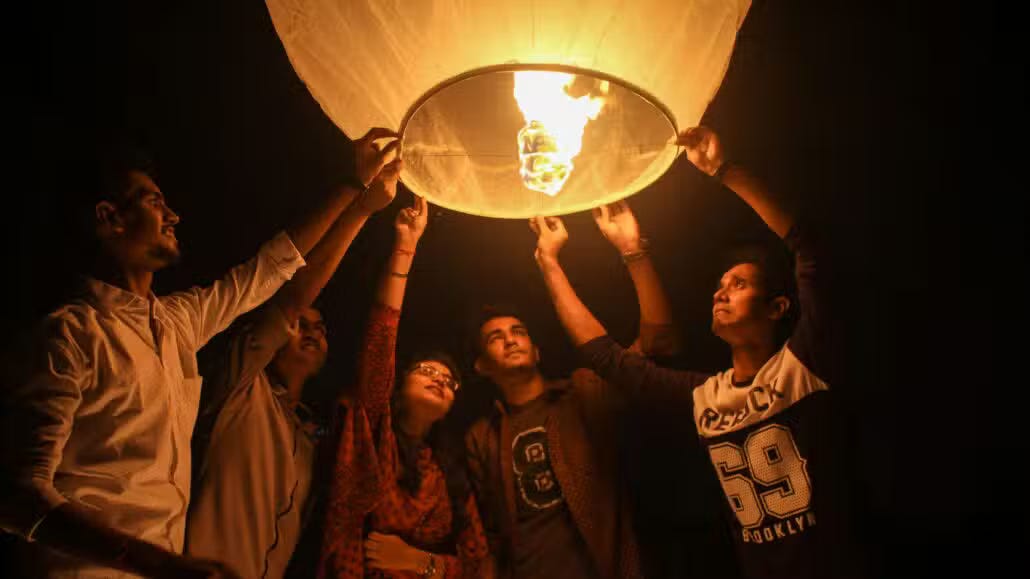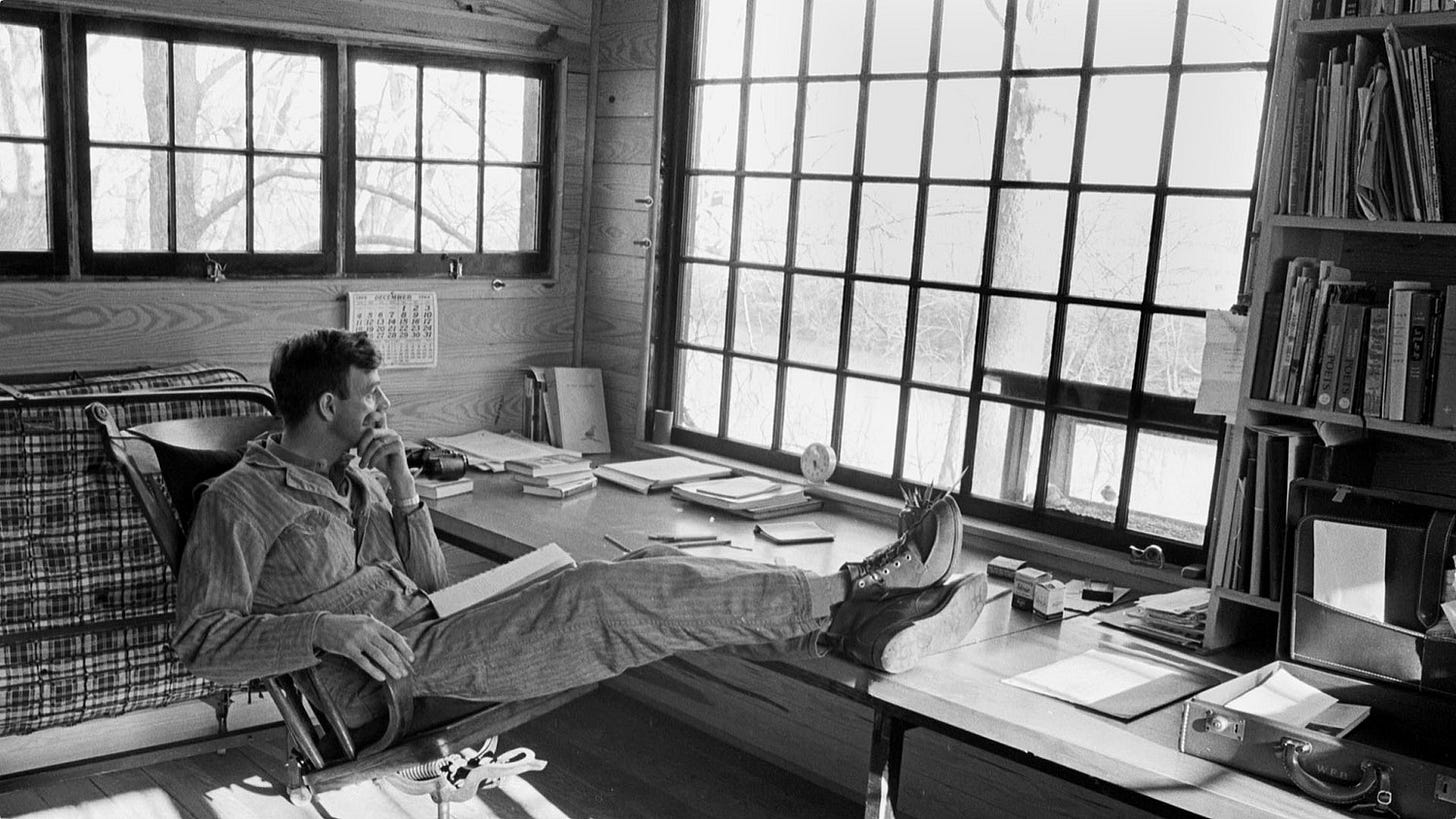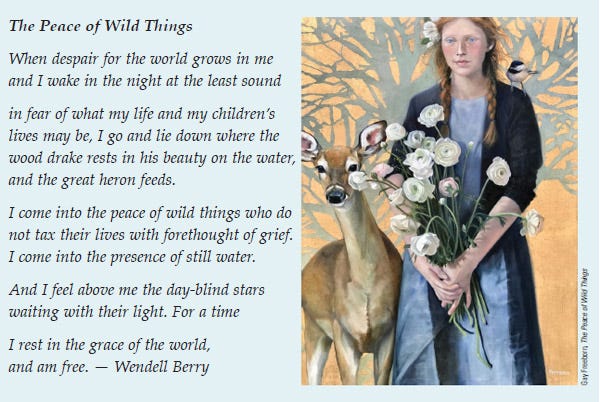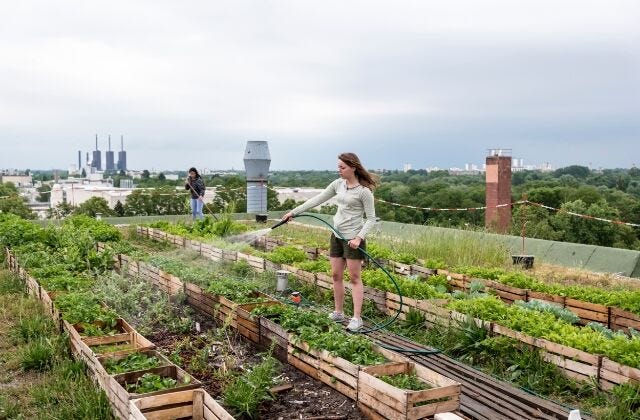You don’t need to run away to a farm or drop out of capitalist society in order participate in this movement. Instead, a few simple steps can reorient us.
Find 4 Meditations within this essay:
On Food & Water- “where is yours sourced?”
On Ecosystem- “what’s actually happening in your yard?”
On Earth- bringing gratitude to “Thou.”
Consider this a “starter pack.”
Yesterday I awoke from the best night’s sleep I can recently remember— vivid dreams, uninterrupted rest for both body and mind. This followed an intense day of nervous system recalibration that left me with that glowing exhaustion of deep inner work. My lungs felt expanded, and it was easy to notice the increase in capacity.
As has been the case of late, the expansion was followed with its counterpoint. Nature delivered a harsh reminder of impermanence in the form of a ferocious dust storm, with 50mph winds forcing their way through the cracked door seals of the van—remnants of a previous windstorm that nearly tore them from their hinges. The air quality deteriorated in the brown out (it’s kind of like a “khaki out”) and had me sleeping with an N-95 mask, repeatedly waking to clear my throat and catch my breath. It was brutal.
Today, as dust particles are settling in my lungs, I'm circling back to this half-baked essay holding a sobering metaphor: all civilizations, regardless of their might or technological achievement, eventually return to dust, the same dust that fills my lungs. I’m connecting viscerally to the unprocessed grief, in Chinese Medicine grief relates to the lungs. And in the context of this essay— runaway human ambitition divorced from processed complex trauma including both anger and grief leave us encapsulated in the mind-virus of ‘weitiko’.
Nature can be harsh and since the human brain has shrunk 13 percent in the last 100,000 years as we’ve outsourced aspects of our experience into technology like stone tools and now AI, embracing ourselves as nature and the nestedness of our immediate experience within nature is the remedy for maintaining life and our cognitive agency as humans on this planet.
This poem by Wendell Berry (1979-1997) captures the nature of runaway human ambition.
‘The Objective’
Even while I dreamed I prayed that what I saw was only fear and no foretelling,
for I saw the last known landscape destroyed for the sake
of the objective--the soil bulldozed, the rock blasted.
Those who had wanted to go home would never get there now.
I visited the offices where for the sake of the objective,
the planners planned at blank desks set in rows.
I visited the loud factories where the machines were made
that would drive ever forward toward the objective.
I saw the forest reduced to stumps and gullies;
I saw the poisoned river--the mountain cast into the valley;
I came to the city that nobody recognized because it looked like every other city.
I saw the passages worn by the unnumbered footfalls of those
whose eyes were fixed upon the objective.
Their passing had obliterated the graves and the monuments
of those who had died in pursuit of the objective
and who had long ago forever been forgotten,
according to the inevitable rule that those who have forgotten
forget that they have forgotten.
Men and women, and children now pursued the objective as if nobody ever had pursued it before.
The races and the sexes now intermingled perfectly in pursuit of the objective.
The once-enslaved, the once-oppressed,
were now free to sell themselves to the highest bidder
and to enter the best paying prisons in pursuit of the objective,
which was the destruction of all enemies,
which was the destruction of all obstacles,
which was to clear the way to victory,
which was to clear the way to promotion,
to salvation,
to progress,
to the completed sale,
to the signature on the contract,
which was to clear the way to self-realization, to self-creation,
from which nobody who ever wanted to go home would ever get there now,
for every remembered place had been displaced;
every love unloved,
every vow unsworn,
every word unmeant
to make way for the passage of the crowd of the individuated,
the autonomous, the self-actuated, the homeless with their many eyes
opened toward the objective which they did not yet perceive in the far distance,
having never known where they were going,
having never known where they came from.
‘The Objective’ by Wendell Berry, American novelist and poet.
It’s easy for me to ruminate on this aspect of humanity and our shortcomings—so easy. And before the dust storm, I found a few glimmers of sunshine amongst the wreckage—a couple of opportunities to shift perspective and take back the agency related to where my attention is directed. As I’ve noted in previous essays, “it’s already collapsed, stop rubber necking.” The clarion calls only continue as invitations to those ready to begin shifting. It’s not going to be easy, but it’s the only sane option available, so might as well go all in, right?
In the spaces between collapse and renewal, what’s possible expands greatly. A term coined by Tolkien named "eucatastrophe” means the sudden, unexpected turning toward grace within the darkest narrative arc. Tolkien coined the term in his 1947 essay “On Fairy-Stories.” He defined it as "the sudden happy turn in a story which pierces you with a joy that brings tears," representing "a sudden and miraculous grace... a fleeting glimpse of Joy beyond the walls of the world."
This concept, twinned with philosopher Toby Ord's notion of “existential hope,” offers a portal through which we might reimagine our relationship with planetary systems and the incredible opportunity that lies before us. Ord developed his concept at Oxford's Future of Humanity Institute, contrasting it with existential risk. While his book “The Precipice” (2020), carefully analyzes existential risks facing humanity and estimates a 1/6 chance of existential catastrophe in the next century, he balances this with his framework of “existential hope”— the possibility that successfully navigating current challenges could unlock extraordinary flourishing on a cosmic scale. This perspective invites us to consider not just what might be lost, but the exceptional potential that remains possible if we make wise collective choices about our planetary systems right now.
Our encounter with ecological limits represents constraint and invitation—a summons to what ecopsychologist and soul-guide Bill Plotkin calls “soul initiation.” The Western psyche, arrested in its adolescent phase of ego-development and consumption, now faces the consequences of its developmental stagnation. This crisis serves as the necessary dismantling that precedes wholeness. We must choose to enter the cocoon.
The ecological boundaries we face— climate destabilization, biodiversity collapse, soil depletion— are nature's feedback mechanisms calling us toward aadulthood. This evolutionary threshold demands vertical development, not just horizontal expansion of our current consciousness. We're being invited to descend from our conceptual silos into embodied, soulcentric participation with the more-than-human world.
This isn't about “saving the planet” through the same consciousness that created our predicament like the “tech-bros” would have us believe. Instead, it’s about allowing ourselves to be fundamentally re-wilded— psychologically, culturally, and spiritually. Our ecological crisis is simultaneously a crisis of human development, beckoning us toward a maturation that includes communion with the animate Earth as primary relationship rather than resource. As systems theorist Joanna Macy suggests, the Great Unraveling simultaneously contains seeds of the Great Turning— a perceptual revolution where we recognize ourselves not as separate actors upon an inert stage, but as embodied expressions of Earth's own self-reflective capacity.
Each morning, we wake within watersheds before we wake within nations, our bodies composed of elements cycled through countless other beings. All our food emerges from Earth's body— a living alchemy where what has died becomes what sustains life. The soil beneath our feet contains countless cycles of life transformed: fallen autumn leaves, ancestral bones, and ancient sediment converted through microbial communion into what grows our grain, fruits, and vegetables—what feeds our cows, chickens and pigs. Each meal connects us to this unbroken cycle of reciprocity, where death nourishes life in an ongoing exchange that predates human existence.
When we eat, we participate in Earth's holy sacrament—the temporary borrowing of elements that will, in time, return to the ground from which they came. Paradoxically, the modern predicament places us in a curious dissociation— economically dependent on systems that systematically unmake the very conditions for life. In “the Great Unraveling,” the statistical markers of ecological decline become felt realities in our fascia and bones., like the dust in my lungs.
Yet within this unraveling lies the possibility of remembering. Bioregionalism invites us into what indigenous theologian Randy Woodley calls “shalom with place”— a reconciliation with the particular geography that holds us.
The invitation is not toward pastoral escapism, however attractive it continues to be for me. Bioregional consciousness asks: How might we inhabit our everyday lives with greater attentiveness to place? Consider these contemplative practices of reorientation:
Sacred Hydrology: Trace your water's journey from source to tap, from body to watershed. This simple meditation reconnects abstract resource consumption with living systems.
Neighborhood Phenology: Document the subtle seasonal shifts in your immediate surroundings—first buds, bird migrations, changing light. These observations constitute what Thomas Berry called “inscaping”—allowing the inner narrative of place to emerge.
Culinary Bioregionalism: Each meal becomes opportunity for relationship. When purchasing food, inquire about its origins. Gradually expand your knowledge of local food producers, creating what philosopher Ivan Illich termed “convivial tools”—systems that enhance autonomy and creativity rather than generating dependency.
The bioregional narrative transcends conventional political divides. It speaks to conservative values of stewardship and intergenerational responsibility. It addresses progressive concerns for justice and collective wellbeing. It honors libertarian emphasis on self-sufficiency and decentralization.
In neighborhoods fragmented by ideological division, shared care for immediate place offers common language. When we gather to restore urban streams or establish community gardens, we practice what political theorist Hannah Arendt called “spaces of appearance”— where diverse citizens encounter one another in shared purpose, revealing their full humanity.
Perhaps most striking, bioregionalism resolves the paralyzing tension between individual action and planetary crisis. French philosopher Gaston Bachelard wrote of “intimate immensity”— how contained spaces can open to cosmic significance. Your yard becoming habitat, your purchasing patterns creating markets, your neighborhood conversations shifting cultural narratives— these constitute what anthropologist Margaret Mead recognized: “Never doubt that a small group of thoughtful, committed citizens can change the world; indeed, it's the only thing that ever has.”
As we navigate this evolutionary bottleneck, let’s remember that meaningful transition doesn’t come from individual retreat nor through colective revolution alone, but through the patient, attentive cultivation of relationship with the places we live. In reconnecting with the living systems that sustain us, we discover ourselves as participants in a story far older and more enduring than the temporary institutions now collapsing.
What small act of bioregional reconnection might you practice today?
Perhaps most radically, bioregionalism invites us to recognize what theologian Thomas Berry called “the sacred ordinary”—the profound spiritual significance of everyday ecological relationships. When we acknowledge the sacredness of soil microbiomes, pollination networks, and mycelial webs, we participate in what ecological elder Joanna Macy names “the work that reconnects”—the healing of our perceived separation from the living world.
This can be done by giving thanks to the food on your plate and all of the people, human and nonhuman involved in getting the meal to your table. It takes less than a minute and makes all the difference in cultivating awareness and reverence for the life-giving Earth we are so blessed to float through space upon. There is much still unknown about our purpose and place in the cosmos however, it is clear the Earth sustains us and giving thanks reconnects us to the umbilical cord we so easily forget.
This reconnection resolves the paralyzing tension between individual agency and planetary healing. Philosopher Martin Buber distinguished between “I-It” relationships of utility and “I-Thou” encounters of sacred presence. Each time we relate to our local ecosystems as thou rather than it, we participate in what Indigenous teacher Tyson Yunkaporta calls “sand talk”—thinking that aligns with, rather than against, the patterns that sustain life.
As we journey through these transitional times, we can’t forget that the more beautiful world emerges through patient cultivation of intimate relationships with the places we already inhabit. Every meal becomes ceremony; every step, a prayer; every conversation, an opportunity to weave new cultural narratives that honor the delicate interdependence upon which all flourishing depends.
What whisper of bioregional belonging are you hearing today, and how might you amplify its invitation?
I’ll end with this quote from Wendell Berry to bookend our journey.
“To cherish what remains of the Earth and to foster its renewal is our only legitimate hope of survival.”
With Love,
Patrick

